I was sitting at a table a while back, talking about travel with friends and a couple of people I didn’t know. At one point, I mentioned that I had traveled around Guatemala a few years ago. One of the newcomers quickly asked:
“Is it safe?”
She didn’t ask: “What is there to do in Guatemala?” or “How was the food?” or even “How easy is it to get laid there?” No. The first question was:
“Is it safe?”
I wish I could say this was an exception, but it’s not. When talking about travel, especially travel outside of the US, the first question I usually get is:
“Is it safe?”
I’ve had enough. I’m tired of our obsessive focus on safety above all else. Since when did the gold standard for a great trip become merely surviving it?
And just what is it that we consider unsafe, anyway? Are we afraid of being murdered or kidnapped? Maybe we fear food poisoning? Or maybe we fret about having our feelings hurt or feeling stupid because we can’t speak the language?
The thing is, we’re not very good at identifying the real threats to our well-being. We overestimate dangers that pose very little real risk, like terrorism or violent crime. In national surveys, nearly half of the US population expresses fears of being a victim of a terrorist attack. The people who express the greatest fears are often folks who live in places that are the least likely to be targets of a terrorist act (like rural areas and small cities).
In reality, toddlers shoot more Americans every year than terrorists kill, and yet people are quick to reach out and hold those little killers.
So we worry needlessly about terrorism, even as we hop into our cars and drive to work, to school, to the store, to the mailbox. And yet, there’s a virtual 100% chance that we’ll be in a car accident at least once in our lives. And it gets worse: One in a hundred of us will die in a car wreck. One in a hundred! We are 2½ times more likely to die in a car accident than to be murdered and 450 times more likely to die in our car than at the hands of a terrorist (or a toddler).
Still, when we travel, someone, maybe everyone, is going to tell us:
“Be safe!”
But what are the actual risks of travel? The most common problem is getting sick—minor ailments like diarrhea and upset stomachs. These are almost never life-threatening, although when we run to the toilet for the fifth time in an hour, we might wish we were dead.
In many countries, the most serious risk to your well-being is exactly the same as it is in the US: a car accident. In Egypt, for example, car accidents have killed more American tourists since 2002 than terrorists (the year the State Department began tracking such grim statistics).
Still, the risk of death while traveling is very small. Since 2002, an average of roughly 800 Americans a year died from unnatural causes while abroad. Many of the people who died were living abroad, not temporary visitors traveling there for a week or two.
But let’s keep this in perspective: tens of millions of Americans travel outside of the US every year (66 million in 2016), which means that about 1 in 100,000 Americans die abroad each year. Here are a few other risks to your well-being that have a 1 in 100,000 chance of happening: being executed for murder, killed by a dog, or dying in an earthquake. You are more likely to die from an asteroid strike than while traveling. And you are 1,000 times more likely to die in a car accident than while traveling! Be safe!
I could go on quoting statistics, but I know it wouldn’t matter. Some of you look at those numbers and scream: “I told you so! Look at all the people who died while traveling!”
And I could scream back: “But look at all the people in the US who died while not traveling!!”
Travel, like life, isn’t risk-free, but our fears are way out of proportion to the actual risks. “So what?”, you may ask. “I’d rather be safe than sorry.”
“Better safe than sorry.” That’s another saying that annoys me. We act as if being safe doesn’t come with its own costs. When we fear unpleasant experiences, we retreat; we stick to what we already know—the people in our subdivision, the same restaurants, the same news sources. We don’t want to leave our safety bubble (or we might be sorry!).
When we travel with fear, we stay in an all-inclusive resort so we never have to go into town where the scary people live; we avoid people who look different or intimidating. We eat the food that we know we like already. We only visit the places that feel familiar to us. We pack up the world where we live and unpack it once we get off the plane.
So what? Hiding inside a protective shell shields us not only from whatever dangers we fear but also from the far more likely pleasures of travel (and life), like a fascinating conversation with a stranger, tasting something new, finding out how much you enjoy traveling by bus, or maybe learning how to ask for a beer in Mandarin.
**Read more about the Mississippi River in Road Tripping Along the Great River Road, Vol. 1. Click the link above for more. Disclosure: This website may be compensated for linking to other sites or for sales of products we link to.
I’ve been lucky enough to travel to most of the US and 37 countries. I’ve seen great works of art like the Sistine Chapel and toured amazing sites like Machu Pichu. But I’ve also talked (and drank) with survivors of the siege of Sarajevo and went to a wake in El Salvador. I’ve had the chance to see how people live and feel in places around the world, which has broken down many of the artificial barriers in my head. And I can ask for a beer in at least a dozen languages, even if I sometimes get laughed at for my mangled pronunciations. I’ve collected an incredible set of memories of these places and experiences.
Travel can have many benefits, something that plenty of writers have noted (just Google “travel quotes”). Here are a few that stand out for me:
- It’s fun! Eating new food and drinking new drinks with new friends is a great way to pass the time.
- Travel can force me out of my bubble, reminding me that other people matter, too.
- Exposure to people from different backgrounds with different values can make me less self-centered; it shows me that there’s more than one way to fry a potato.
- Travel helps me place my own life in perspective, as well as where I fit in (hint: it turns out that life isn’t all about me, dammit!).
- Maybe most important of all, though: travel builds gratitude. Travel around a developing country where most people don’t have access to decent health care and where they can go days without a basic meal and tell me you don’t feel lucky that you were born in America instead of there.
Ultimately, though, our fears about travel (and other risks) reflect something deeper: They betray a lack of confidence in our ability to bounce back from unpleasant or difficult experiences.
Travel, and life, offers inevitably good and bad times. Shielding ourselves and our children from difficulties deprives us and them of the opportunity to gain valuable experience: to learn that broken arms heal, that broken hearts mend, that broken car windows can be replaced.
When we fail to challenge ourselves to push through our fears, we don’t develop the confidence to know that whatever happens, our lives go on and so do we. Without that confidence and the resilience it builds, we see harm in every shadow instead of shade, our neighbors become threats instead of allies, and the rest of the world looks like a minefield instead of new places to explore.
So quit telling me “Be safe.” But more important, quit telling yourself. When we let our fears rule how we live, we live small lives. Don’t live small.
©Dean Klinkenberg, 2017
Community-supported writing
If you like the content at the Mississippi Valley Traveler, please consider showing your support by making a one-time contribution or by subscribing through Patreon. Book sales don’t fully cover my costs, and I don’t have deep corporate pockets bankrolling my work. I’m a freelance writer bringing you stories about life along the Mississippi River. I need your help to keep this going. Every dollar you contribute makes it possible for me to continue sharing stories about America’s Greatest River!
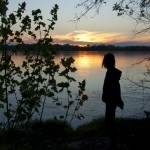
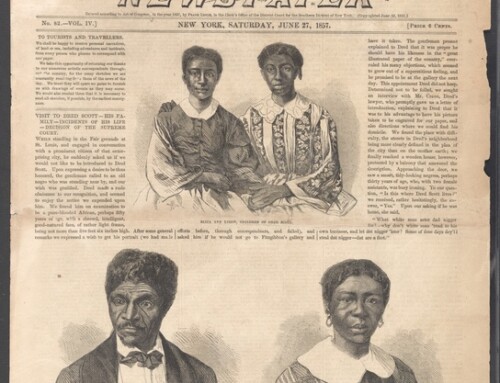
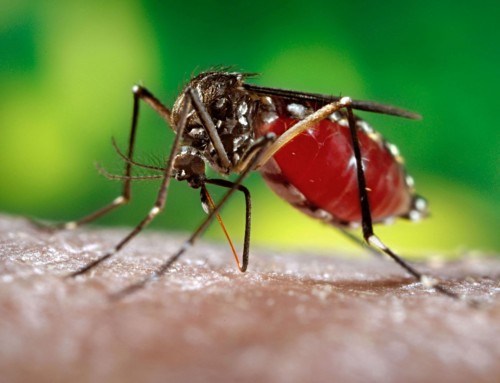
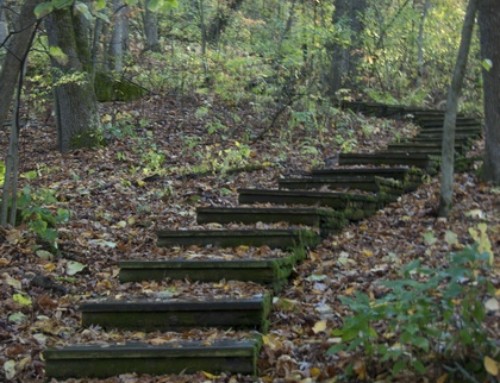
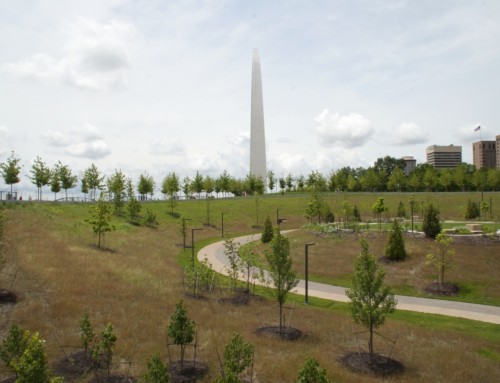
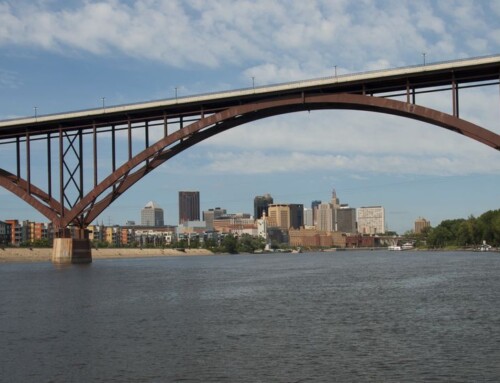
Thanks, Charles! I’ll pass along a hello to the family.
Enjoyed the piece on “is it safe to travel”. The only time in my life when I asked that question, and answered no it is not safe, was on 9/11/2001. We had a scheduled trip with friends to Egypt starting 10/1/2001. We did cancel on this one, but not on any others. I know your brother Kevin, he was a good friend of my daughter, and I worked for your Dad at Wilson in Marshall, Mo.
Thanks, Tony! I understand that fear is a powerful emotion, but I know that we are also capable of getting a handle on our fears and moving past them. As you say…live your life!
So true Dean
Hiding is not accomplishing anything except giving radicals a victory through terror.
Live your life without fear and you will be a happier person
Thanks, Amy! And I understand. 🙂
Amen!
(But I will still always wish you safe travels, whether out of the country or down Hwy 40 or down the stairs to your front door!)